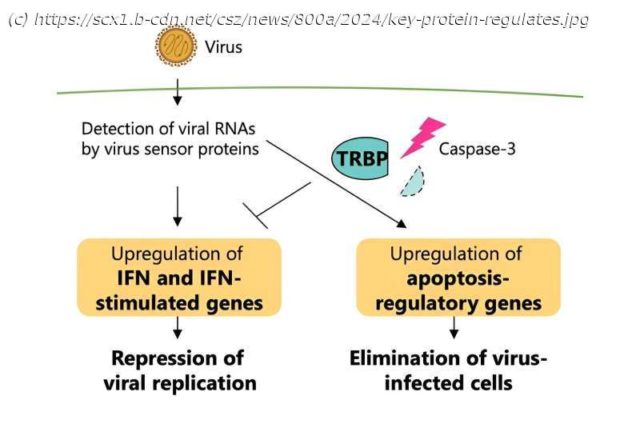Researchers have revealed the regulatory mechanism of a specific protein that plays a key role in balancing the immune response triggered by viral infections in mammal cells. These findings could help drive the development of antiviral therapies and nucleic acid medicines to treat genetic disorders. The research is published in the journal Nucleic Acids Research.
Researchers have revealed the regulatory mechanism of a specific protein that plays a key role in balancing the immune response triggered by viral infections in mammal cells. These findings could help drive the development of antiviral therapies and nucleic acid medicines to treat genetic disorders. The research is published in the journal Nucleic Acids Research.
For cells to protect themselves from viral infections, a series of immune responses typically occur, including programmed cell death called apoptosis and interferon signaling. While apoptosis is a normal process, that occurs with or without the presence of viral molecules, following a cascade of steps to end with the death of a cell—which might not sound advantageous to the host—it can help prevent the reproduction of abnormal cells, including those infected by viruses, and eliminate them from the body.
Interferons, on the other hand, are proteins produced by animal cells in response to a viral infection to protect the cell against viral attacks and prevent the virus from replicating. The regulatory mechanism of how cells maintain a balance between apoptosis and interferon response to efficiently suppress viral replication during infection, however, remained unclear.
In the current study, a team including researchers from the University of Tokyo focused on a specific protein, TRBP, which is also classified as a type of protein called an RNA silencing factor.






